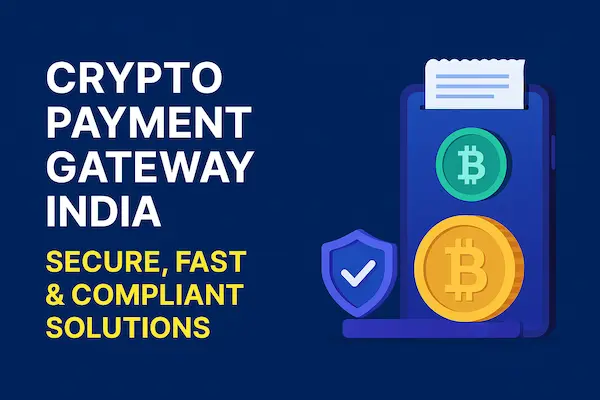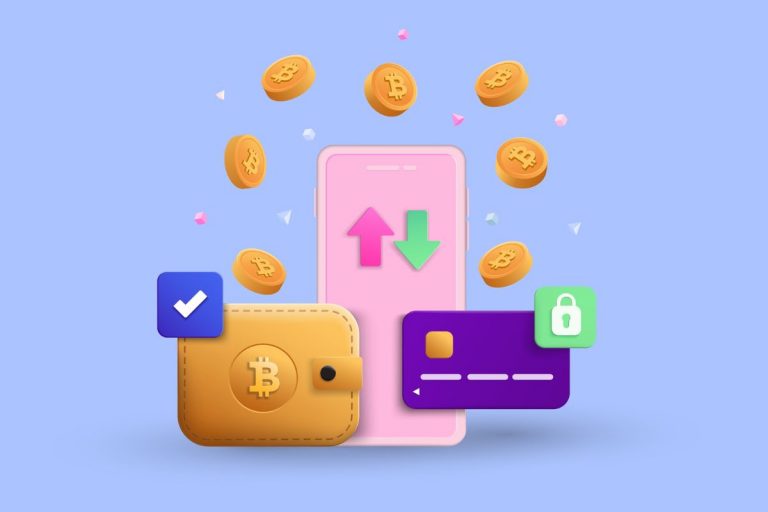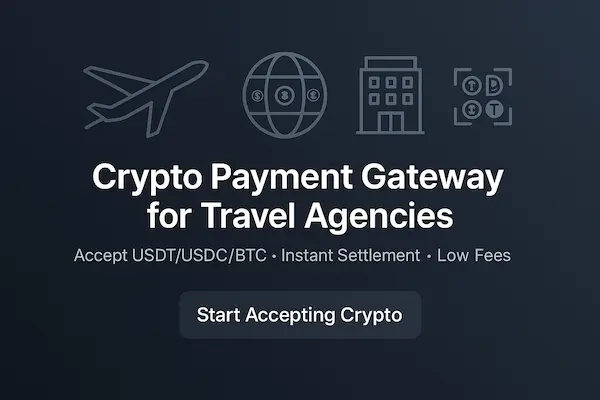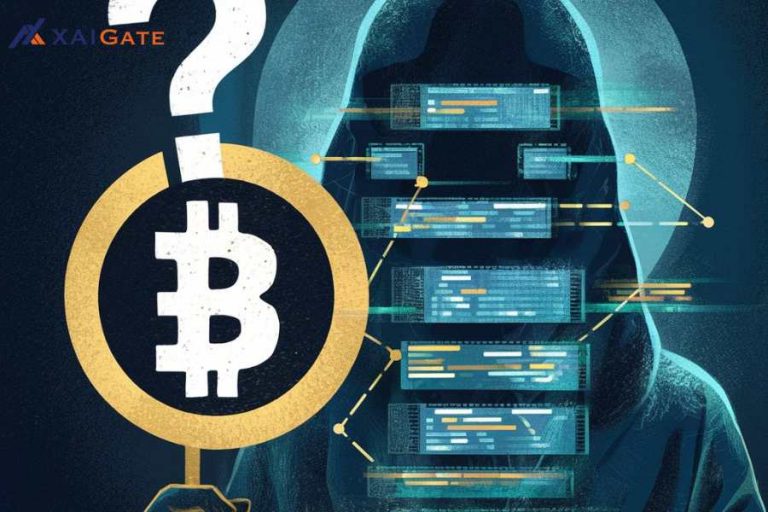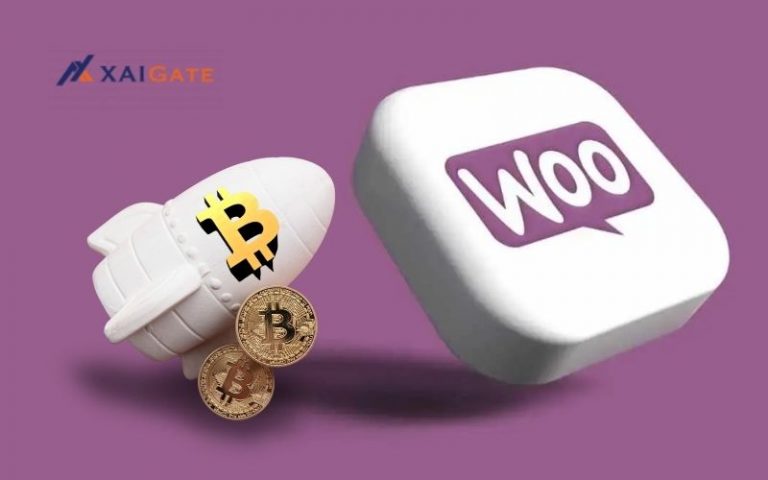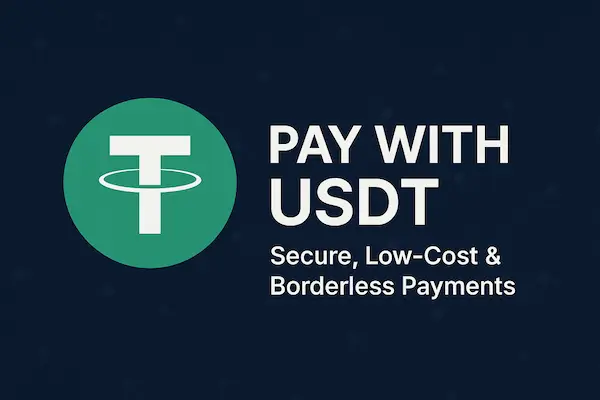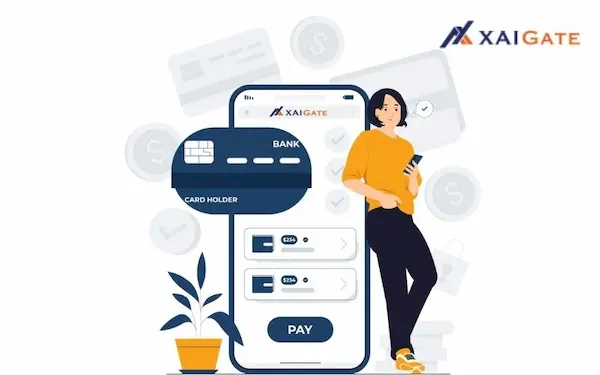India is entering a new phase of digital transformation where traditional payment methods are no longer enough to support its booming online economy. With millions of Indians now holding digital assets, the demand for a crypto payment gateway India has grown from a niche idea to a mainstream necessity.
For businesses in e-commerce, travel, IT services, and even NGOs, offering customers the ability to pay in crypto is no longer just a “nice-to-have.” It is becoming a key differentiator in 2026, especially as global buyers prefer stablecoins like USDT, USDC, and PYUSD for speed and cost savings.
Unlike older models of cross-border transfers that could take days, a modern crypto gateway enables Indian businesses to settle transactions in seconds while still complying with local tax and KYC rules. This balance between innovation and compliance is the foundation for the future of payments in India.
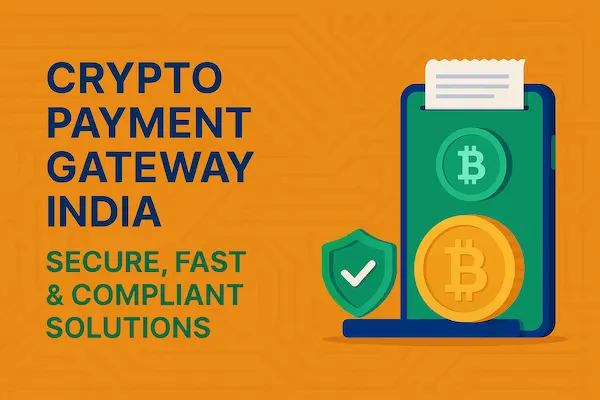
Contents
- 1 1. Why Crypto Payments Are Growing in India
- 2 2. What Is a Crypto Payment Gateway?
- 3 3. Key Benefits for Indian Businesses
- 4 4. How to Accept Crypto Payments in India (Step-by-Step Guide)
- 5 5. Industry Use Cases in India
- 6 6. Case Studies – Real Adoption in India
- 7 7. Regulatory & Compliance Challenges
- 8 8. Future Outlook
- 9 FAQs – Crypto Payment Gateway India
- 10 Conclusion – The Future of Crypto Payment Gateway in India
1. Why Crypto Payments Are Growing in India
India has always been a leader in adopting new financial technologies, and the shift toward digital assets is no different. Several factors are pushing both consumers and businesses to explore a crypto payment gateway in India as a realistic alternative to traditional methods.
First, remittances remain a powerful driver. India is the world’s largest receiver of overseas remittances, surpassing $100 billion annually. Traditional channels often involve high fees and long delays, making stablecoins like USDT and USDC a more attractive option. Through a crypto payment gateway, these funds can arrive within minutes, with almost no conversion cost.
Second, the rise of e-commerce is changing customer expectations. With India’s online retail market projected to hit $200 billion by 2026, international buyers expect seamless, borderless payments. For merchants, enabling crypto checkout reduces friction and expands reach beyond domestic card networks.
Third, the freelancer and IT service economy is expanding rapidly. Millions of professionals in Bangalore, Hyderabad, and Pune now prefer crypto settlements for offshore projects. Using a crypto payment gateway in India, they receive stablecoin payments three times faster than PayPal or SWIFT transfers.
Finally, government attention to digital finance—particularly discussions around the Digital Rupee (CBDC)—is creating awareness and legitimacy. While regulation continues to evolve, businesses that start integrating crypto payments today are positioning themselves ahead of competitors.
Table 1: Traditional vs. Crypto Payments in India
When Indian businesses compare traditional methods with a crypto payment gateway in India, the differences are clear:
| Feature | Traditional Payments | Crypto Gateway India |
|---|---|---|
| Fees | 2–3% per transaction | 0.5–1% average |
| Settlement Speed | 2–5 business days | Seconds to minutes |
| Cross-Border Capability | Limited, high FX fees | Global, borderless |
| Fraud & Chargebacks | Higher risk | Blockchain verified |
| Volatility | None (but FX costs) | Low with stablecoins |
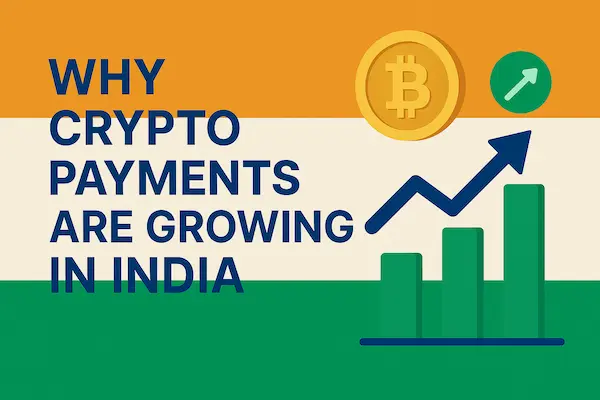
2. What Is a Crypto Payment Gateway?
A crypto payment gateway in India works as a bridge between businesses and customers who prefer to transact with digital currencies. Instead of relying solely on credit cards, UPI, or bank transfers, merchants can now accept stablecoins and cryptocurrencies directly at checkout.
The process is straightforward. When a customer pays with crypto—whether it is USDT, USDC, Bitcoin, or Ethereum—the gateway instantly verifies the transaction on the blockchain and converts it into INR or USD, depending on the merchant’s preference. For the business owner, this means getting paid faster while avoiding the high processing fees of traditional networks.
In addition, most gateways provide built-in tools for tax reporting, KYC, and AML compliance, making it easier for Indian merchants to operate within the country’s financial guidelines. For consumers, the biggest advantage is convenience: they can pay from anywhere in the world without worrying about exchange rates or cross-border restrictions.
In short, a crypto gateway transforms digital assets into a usable payment method, giving Indian businesses a future-ready solution that matches the country’s growing digital economy.
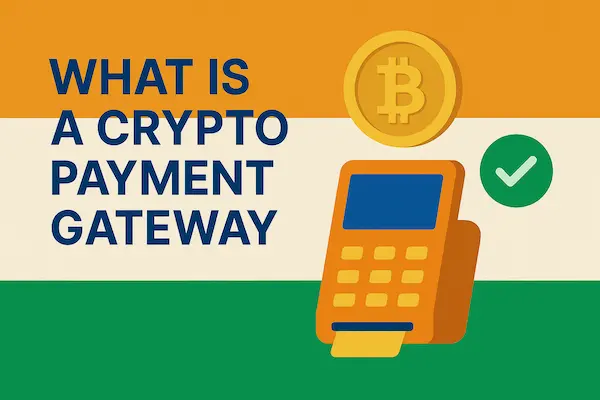
3. Key Benefits for Indian Businesses
For Indian merchants, adopting a crypto payment gateway is not just about keeping up with global trends—it is about solving everyday business challenges. Traditional payment systems come with high fees, settlement delays, and cross-border restrictions. By contrast, a crypto payment gateway in India offers several clear advantages:
Lower Transaction Fees: While credit cards and international transfers can cost between 2–3%, most crypto gateways charge less than 1%. For businesses operating on tight margins, especially in e-commerce, these savings can make a significant difference.
Faster Settlements: Payments that would normally take 2–5 business days to clear through banks can be settled in seconds. This improves cash flow for merchants and builds trust with global customers who expect instant confirmation.
Borderless Access: A crypto gateway allows Indian businesses to sell to anyone, anywhere in the world, without worrying about foreign exchange hurdles. This is especially valuable for exporters, digital service providers, and freelancers who rely on overseas clients.
Stablecoin Protection: By using USDT or USDC, companies can shield themselves from the volatility of Bitcoin while still enjoying the benefits of blockchain payments. Stablecoins give businesses the confidence that the value they receive will remain steady when converted to INR.
Security & Transparency: All transactions are recorded on the blockchain, providing a verifiable, tamper-proof record. Multi-signature wallets and encryption further enhance protection against fraud and chargebacks, making it as safe as (if not safer than) traditional payment systems.
In short, the integration of a crypto payment gateway in India helps businesses cut costs, expand globally, and future-proof their operations in a market that is moving rapidly toward digital finance.

4. How to Accept Crypto Payments in India (Step-by-Step Guide)
Integrating a crypto payment gateway in India may sound complex at first, but in practice it follows a simple process. Most businesses can get started in just a few steps:
Step 1: Choose a Reliable Gateway
Select a payment provider that supports stablecoins (USDT, USDC, PYUSD) and offers INR withdrawal options. This ensures both international reach and smooth local settlement.
Step 2: Set Up a Business Wallet
A digital wallet is where your payments will arrive before conversion. Many gateways provide custodial or non-custodial options depending on your compliance needs.
Step 3: Integrate With Your Platform
Most gateways offer plug-ins or APIs for Shopify, WooCommerce, Magento, or custom websites. This allows you to enable crypto checkout alongside traditional methods.
Step 4: Settle in INR
Merchants can choose to auto-convert crypto into INR, or keep part of the balance in stablecoins. Instant conversion helps reduce exposure to market volatility.
Step 5: Stay Compliant
Track GST, apply the 30% tax on gains where applicable, and account for the 1% TDS rule. A good gateway will provide reports to simplify compliance.
Following these steps, even a small business can start using a crypto payment gateway in India to attract global customers and streamline cross-border transactions.
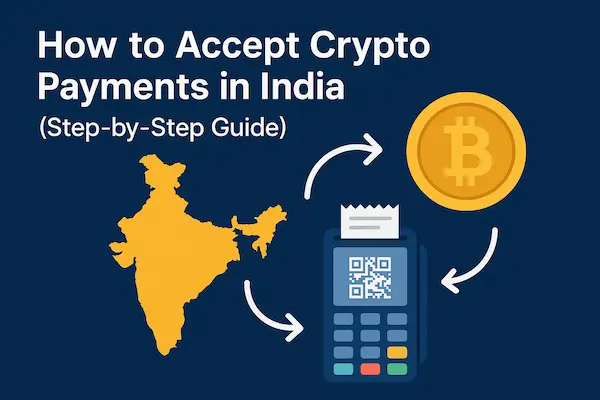
5. Industry Use Cases in India
The rise of digital assets is not limited to one sector. A crypto payment gateway in India is now being tested and adopted across a wide range of industries, each finding unique value in faster, cheaper, and borderless transactions.
E-commerce and Retail
Indian online stores are expanding rapidly, selling fashion, electronics, and consumer goods to global buyers. By integrating a crypto gateway, Shopify and WooCommerce merchants can accept stablecoins, cut card processing fees, and attract crypto-savvy customers who prefer fast digital checkout.
Travel and Hospitality
From boutique hotels in Goa to tour operators in Ladakh, crypto payments are emerging as a way to welcome international guests. Stablecoin payments reduce foreign exchange fees and enable travelers to book instantly without relying on international card networks.
Freelancers and IT Services
Bangalore and Hyderabad are home to millions of freelancers who work with overseas clients. Using a crypto payment gateway India solution, they can receive stablecoin payments directly, cutting delays from 3–5 days to just minutes. This improves cash flow and reduces dependency on platforms with high fees.
Gaming and Esports
India’s gaming market is worth billions and growing every year. Esports organizers and online gaming platforms are adopting crypto for entry fees, prize payouts, and NFT marketplaces. This not only makes transactions faster but also opens new revenue models.
NGOs and Non-Profits
Charities and educational institutions are experimenting with crypto donations. A gateway helps them accept funds globally without the friction of bank wires or cross-currency issues, while blockchain transparency builds donor trust.
Table 2: Must-Have Gateway Features in India
For merchants choosing a crypto payment gateway India solution, these features make the difference between short-term hype and long-term usability:
| Feature | Why It Matters | Business Value |
|---|---|---|
| Stablecoin Support (USDT/USDC) | Reduces volatility risk | Predictable revenue |
| INR Bank Integration | Essential for settlement | Smooth cash flow |
| Multi-Platform Plugins | Shopify, WooCommerce, Magento | Easy integration |
| Compliance Tools (KYC/AML) | Required in India | Regulatory protection |
| Reporting Dashboard | Tax and GST ready | Simplifies compliance |
6. Case Studies – Real Adoption in India
While the concept of a crypto payment gateway in India may seem futuristic, several businesses have already begun integrating these solutions into their operations. The results show clear benefits in efficiency, cost savings, and customer reach.
Case 1 – Mumbai Fashion E-commerce Brand
A fast-growing D2C fashion retailer built on Shopify decided to integrate stablecoin payments through a crypto gateway. Within three months, the company reported a 22% increase in global orders. Customers from the Middle East and Southeast Asia preferred paying with USDT, which settled instantly, reducing abandoned carts and boosting revenue.
Case 2 – Goa Boutique Hotel
Tourism hotspots in India are among the first to embrace crypto. A boutique hotel in Goa began accepting payments in USDT and USDC to cater to European travelers. By using a crypto payment gateway India solution, the hotel reduced foreign exchange costs by 40%, while offering guests a smoother booking process.
Case 3 – Bangalore IT Freelancers
Freelancers in the tech hub of Bangalore are increasingly adopting crypto payments to receive international project fees. With a crypto gateway, they now get paid in stablecoins like USDT or PYUSD within minutes instead of waiting days for PayPal or SWIFT transfers. For many, this shift has improved working capital and reduced reliance on high-fee intermediaries.
7. Regulatory & Compliance Challenges
One of the biggest questions surrounding a crypto payment gateway in India is not about technology, but about regulation. While crypto adoption is expanding, the legal environment is still evolving and can create uncertainty for businesses.
Taxation Rules
Since 2022, India has imposed a 30% tax on crypto gains along with a 1% TDS on transfers. While these measures target trading, businesses accepting crypto payments must also track and report transactions accurately. For merchants, this means working with gateways that provide automated tax reports and clear compliance tools.
Banking Restrictions
Although crypto is not banned, many Indian banks remain cautious. This sometimes makes INR settlement slower or limited. Choosing a gateway that has reliable banking partners is essential for smooth conversion from stablecoins to INR.
RBI and Government Oversight
The Reserve Bank of India (RBI) has repeatedly voiced concerns about digital assets, citing volatility and money laundering risks. However, the launch of the Digital Rupee (CBDC) shows that India is open to blockchain-based payments, even if private crypto regulations are still unclear.
KYC and AML Compliance
For businesses, ensuring compliance with Know Your Customer (KYC) and Anti-Money Laundering (AML) rules is critical. A professional crypto gateway simplifies this by integrating identity checks and transaction monitoring.
In short, the regulatory picture is not yet black and white. But with careful planning and the right partners, Indian businesses can still use a crypto payment gateway India solution while staying compliant with tax and financial rules.
8. Future Outlook
The next few years are likely to reshape how businesses and consumers view digital transactions in India. The introduction of the Digital Rupee (CBDC) signals the government’s commitment to blockchain-based innovation, while private stablecoins like USDT and USDC continue to dominate global settlements. This dual-track system could allow India to balance innovation with oversight.
For Indian companies, adopting a crypto payment gateway in India now provides a first-mover advantage. As more consumers demand flexible payment options, businesses that already support stablecoin transactions will stand out. This is particularly true for e-commerce, SaaS, and export-driven sectors, where borderless payments create new revenue streams.
Fintech startups are also expected to play a central role. By 2026, analysts predict that one in four Indian SMEs may integrate some form of crypto gateway solution. This is not just about following global trends; it is about meeting local needs for speed, transparency, and lower costs.
The big picture is clear: India is moving toward a blended financial future where traditional banking, CBDCs, and stablecoins coexist. Companies that prepare early with a crypto payment gateway India integration will be better positioned to thrive in this new digital-first economy.
FAQs – Crypto Payment Gateway India
1. What is a crypto payment gateway in India?
A crypto payment gateway in India enables merchants to accept crypto and stablecoins, with instant INR conversion.
2. Are crypto payments legal in India in 2026?
Yes. Businesses can legally accept payments if they follow India’s tax and KYC/AML rules.
3. Which stablecoins are most popular in India?
USDT and USDC are the leading stablecoins used by Indian merchants due to stability and liquidity.
4. How much are the fees for a crypto payment gateway in India?
Most gateways charge around 0.5%–1%, far lower than card processors at 2%–3%.
5. Can businesses withdraw crypto into INR?
Yes. A reliable crypto payment gateway India solution supports direct INR bank settlements.
6. What industries benefit from crypto payments in India?
E-commerce, travel, freelancers, gaming, and NGOs see the biggest benefits from using crypto.
7. Is it safe to use a crypto payment gateway India solution?
Yes. Blockchain verification and KYC processes make transactions secure and transparent.
8. How does the Digital Rupee impact crypto payments?
The Digital Rupee will coexist with stablecoins, making gateways essential for global settlements.
9. Can freelancers in India accept payments through a crypto gateway?
Yes. Freelancers often choose stablecoins like USDT for faster and cheaper payments.
10. How can Indian businesses start using a crypto payment gateway?
They need to choose a gateway, set up a wallet, integrate checkout, and stay tax compliant.
Conclusion – The Future of Crypto Payment Gateway in India
India’s digital economy is moving into a decisive new era. With more than 150 million crypto users and increasing government discussions around the Digital Rupee, the need for a crypto payment gateway India is becoming urgent for businesses of all sizes.
From e-commerce brands reaching global customers to freelancers receiving instant stablecoin settlements, the gateway model is proving its value in real time. What makes this moment newsworthy is the mix of growing adoption, regulatory debate, and fintech innovation happening simultaneously in India. Companies that wait risk falling behind, while early adopters gain access to borderless revenue streams and improved trust from a new generation of digital-first consumers.
As India positions itself at the center of global crypto adoption, crypto gateways are not just a payment option—they are a strategic necessity. Businesses that integrate now will not only reduce costs and speed up transactions but also secure a long-term advantage in one of the world’s most dynamic digital markets.
Quick Summary
| Factor | Advantage for Indian Businesses |
|---|---|
| Fees | 0.5–1% vs. 2–3% with cards |
| Settlement | Seconds instead of days |
| Global Reach | Access to 180+ countries |
| Stability | USDT/USDC reduce volatility |
| Compliance | KYC/AML + tax reporting ready |
| Growth Trend | India among top 3 global crypto adopters |
The future of payments in India is being written right now. Don’t let your business miss out on faster settlements, lower fees, and global opportunities.
Start today with XaiGate’s Crypto Payment Gateway — designed to help Indian businesses accept USDT, USDC, PYUSD, and more, with instant INR settlement and full compliance for 2026 and beyond.
For daily updates, subscribe to XAIGATE’s blog!
We may also be found on GitHub, and X (@mxaigate)! Follow us!

